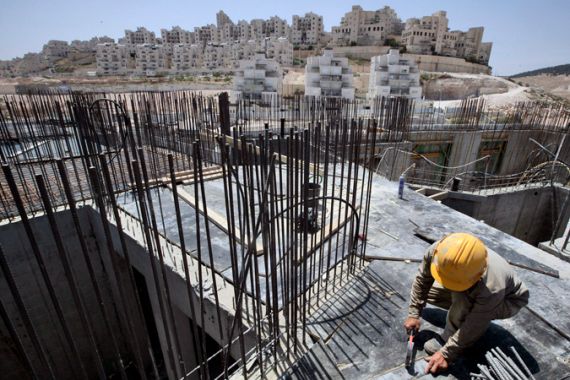What is next for the peace process?
Al Jazeera’s senior political analyst Marwan Bishara answers key questions after US failure to halt Israeli settlements.

As the US abandons its attempts to insure a temporary settlement moratorium in the occupied West Bank as a way to restart the “peace process”, Marwan Bishara, comments on what that means to the Palestinians, Israelis and US policy in the Middle East.
What are the Palestinian options in light of continued negotiations freeze?
The Palestinian authority is in a bind. It has rejected any direct talks with the new right wing Israeli coalition until Israel imposes a moratorium on illegal settlement that continue to eat away from their perspective state, including East Jerusalem, hoping that the Obama administration make it happen.
Today, they are left dependent on a lame duck administration, with little or no option to pressure Israel on the ground. Instead, the Palestinians hope to build on a new modest international momentum that has started in Latin America to recognise a Palestinian state within the 1967 borders, and at the same time, build the infrastructural, economic and administrative basis of a defacto future state. Whether the PLO would unilaterally declare a Palestinian state remains to be seen, after all it did to declare such a state in 1988 to no avail.
What does that mean to Israel?
The Netanyahu government has expressed its opposition to any international recognition of a Palestinian state that would raise “false hopes” among Palestinians, but supports the Palestinian government’s attempts to concentrate its efforts on strictly economic and institution building.
Netanyahu reckons continued Jewish settlements in the West Bank and East Jerusalem will insure future civilian and military Israeli presence and defacto determine the contours of borders, sovereignty and (in)dependence of a Palestinians state. He hopes that if the time comes, Israel would recognise a Palestinian entity with all the trappings of sovereignty, call it a state, but which in reality is no more than dependent autonomy, or a bantustan [territory that was set aside under apartheid for black South Africans].
What are the US options?
US failure to pressure Israel into temporary settlement moratorium in return for very ‘generous’ inducements, is humiliating to an already weakened administration. Although, some US officials speak of a return to indirect or so called ‘proximity talks’, this is clearly too little too late. Maintaining a ‘crisis management’ mode instead of its previous commitment to resolve the conflict on the basis of justice and security for all will continue to hurt US policy, or so argues an increasing number of US officials and generals. Unable to kick start the “peace talks” the US is morally and politically obliged to go back to the International Quartet (UN, EU, Russia and US) which in turn needs to take a serious look at recognising an independent Palestinian state within the 1967 borders. Israel might be a US responsibility, but occupied Palestine is the responsibility of the international community that has long abandoned it.